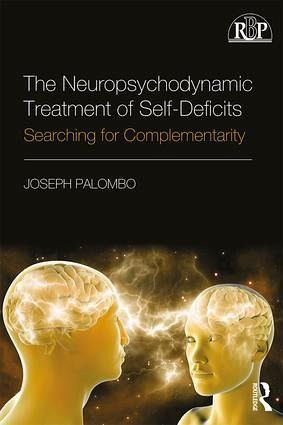
The Neuropsychodynamic Treatment of Self-Deficits
Searching for Complementarity

PAYBACK Punkte
29 °P sammeln!
The Neuropsychodynamic Treatment of Self-Deficits examines how to work psychoanalytically with patients to address the problems that result from neuropsychological impairments, exploring the latest advances in understanding and treatment, while also addressing the concerns that clinicians may have in providing treatment. Patients with disorders such as ADHD, dyslexia, and executive function disorders can often feel shame, and develop defenses as a result of their disorders. These defenses can then become overgeneralized and lead to future dysfunctional feelings, thoughts and behaviors. For the...
The Neuropsychodynamic Treatment of Self-Deficits examines how to work psychoanalytically with patients to address the problems that result from neuropsychological impairments, exploring the latest advances in understanding and treatment, while also addressing the concerns that clinicians may have in providing treatment. Patients with disorders such as ADHD, dyslexia, and executive function disorders can often feel shame, and develop defenses as a result of their disorders. These defenses can then become overgeneralized and lead to future dysfunctional feelings, thoughts and behaviors. For therapists, the challenge is to find ways of responding to these patients and to help them deal with their issues at the level of the multiple domains of self-experience, rather than at the single level of their intrapsychic dynamics. This book proposes a new neuropsychodynamic perspective that is bound together by a metatheory, deriving from dynamic systems theory. Joseph Palombo breaks new ground in his consistent application of non-linear dynamic systems theory and a levels-of-analysis perspective. The framework suggested conceives of the therapeutic process as a collaborative effort in which each member of the dyad makes a unique contribution to the process. Change agents that permit patients to benefit from therapeutic interventions include the relationship between patient and therapist, the understanding that emerges from the identification of the self-deficits, and the proactive engagement of the patient's sense of agency. The great advantage of Palombo's framework is that it permits the integration of a broad set of domains of experience that include the neuropsychological, the introspective, and the interpersonal. This book will allow the reader to become familiar with the types of patients that have neuropsychological deficits, providing an understanding of the psychodynamics of these conditions and enabling better preparedness to address psychological needs. More important, Palombo also makes the underlying case that an understanding of brain function is critical to any assistance such patients may need. Covering work with children, adolescents, and adults, The Neuropsychodynamic Treatment of Self-Deficits is the first book to offer a guide to understanding and working with patients with a range of neuropsychological disorders from a broadly psychoanalytic perspective. It will appeal to psychoanalysts, psychotherapists, and clinical psychologists, as well as clinical social workers, family therapists, and mental health nurses.














